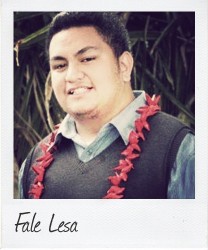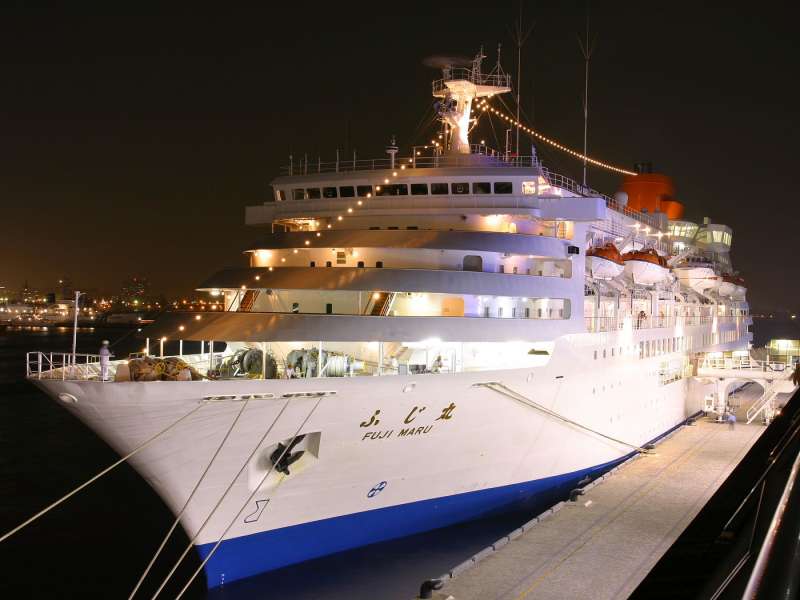“This was a voyage that would change the framework of life”
March 7 A luxurious cruise with two hundred young people was no ordinary sail, writes Fale Lesa, 23, a Commonwealth Correspondent from New Zealand. The cruise brought training and cultural exchanges that encouraged young leaders to re-evaluate their outlook on life.
A luxurious cruise with two hundred young people was no ordinary sail, writes Fale Lesa, 23, a Commonwealth Correspondent from New Zealand. The cruise brought training and cultural exchanges that encouraged young leaders to re-evaluate their outlook on life.
Some things are outside the realm of normalcy. Two hundred or so young people from all over the world on a cruise liner touring coastal Japan for a month is right up there. It’s original, it’s hip, and it’s exclusive to the Cabinet Office of Japan.
It wasn’t all smooth sailing. At least not at first. This would prove to be my longest journey abroad, and my first time to be at sea for more than an hour. I worried about seasickness, home sickness, and sheer exhaustion. Little did I know that this was a voyage that would change the entire framework of life as I knew it.
For me, the programme was merely a skeleton. The real meat was discovered at the many evening functions, institutional visits, and most often of all in old-fashioned conversation with fellow participants and facilitators. The dining hall was a classroom, right down to the chalkboard and all.
We gathered first in Tokyo City before being whipped away to our home-stay experiences up and down the country. I landed in Nagasaki, famous for its destruction at the hands of the atomic bomb in the Second World War. We saw the damage first-hand at a museum dedicated entirely to the tragedy, and more importantly, we saw how the people of Nagasaki recovered to gain strength from the experience. Today, their commitment to the movement against nuclear weapons all over the world is a remarkable testimony to the legacy of war. I will never be the same again.
Following that was extensive training at the National Olympic Centre back in the capital. The training would prepare us for our time on the ship and introduce our course discussions (a choice of cross-cultural understanding, education, environment and CSR, information and media, or international relations).
After the training, it was time to embark on our extensive tour of the seas. It couldn’t have come soon enough for someone like me. I don’t respond well to endless manuals and instructions. I am the product of an environment that encouraged the very opposite – limited training, limited instruction, next to no routines, sink or swim. This new approach would take some getting use to.
The ship itself was luxurious and we sailed the seas in a style like no other before us. Ours was a ship built purposely for young people. We were all going places; destined for greatness (or so we thought). The ship reflected this unique blend of energies. And it was this very atmosphere that got us out of bed every morning, and kept us far from bed long into the night. Our time on the ship varied between course discussions, port of call activities, letter group meetings (houses), and commitments to a host of clubs and social groups. From time to time seminars were thrown in for good measure. I thoroughly enjoyed the depth involved in our daily activities, and walked away from every port of call feeling inspired. We visited disaster-prone areas (Kobe, Ofunato, and Rikuzentakata), an isolated Japanese paradise (Okinawa), and a people determined to get on with life in spite of the turmoil. It was by far the greatest lesson from this adventure. We shall never forget.
In the end, this was no ordinary sail. A young man is never the same when you deny him access to the comforts of home, even for just a short month. It is through the exchange of culture that one evolves and re-evaluates the values and outlooks that define the very concept of life. For that I am incredibly grateful to the government and people of Japan. I am also grateful to my peers and instructors on the programme; their wisdoms and experiences will forever be of use to me. Words are inadequate. This is an example of one government and its commitment to global youth development for more than twenty-five years. There can be no greater investment in the fabric of tomorrow’s leadership. These are the hallmarks of a successful future where leaders are trained long before they are called, and are therefore more informed than ever before. I appreciate the government and people of Japan. I appreciate their generosity and their initiative. I appreciate the gift of experience. And above all else, I appreciate the lessons.
………………………………………………………………………………………………
About me:
Fale Lesa brings more than seven years of community and youth development experience to his writings. He was recently rewarded for these experiences with a career at New Zealand’s Ministry of Foreign Affairs & Trade. As an aspiring diplomat, degrees in law and German BA/LLB make him an exceptional candidate for an overseas posting.
…………………………………………………………………………………………………………………
Opinions expressed in this article are those of the author and do not necessarily represent the views of the Commonwealth Youth Programme. Articles are published in a spirit of dialogue, respect and understanding. If you disagree, why not submit a response?
To learn more about becoming a Commonwealth Correspondent please visit: http://www.yourcommonwealth.org/submit-articles/commonwealthcorrespondents/
…………………………………………………………………………………………………………………




